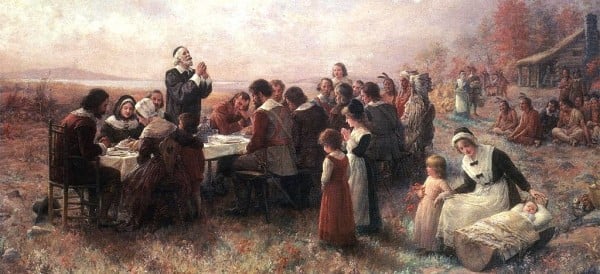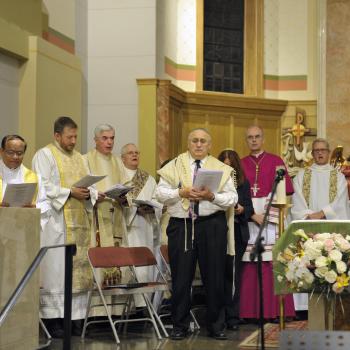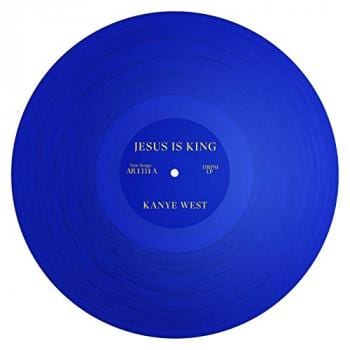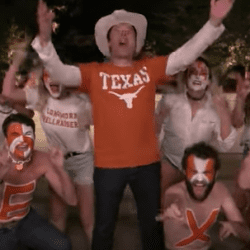Scholars are starting to pick over that question with a large fork and carving knife.
Details, from Religious News Service:
Despite their reputation as buckle-belted killjoys, the Puritans and Pilgrims knew how to have a good time. They brewed beer, feasted on fowl and enjoyed sex — all in moderation, of course.
That’s why some historians believe the 1621 celebration that’s sometimes dubbed the “First Thanksgiving,” was not actually a “thanksgiving” day at all. In fact, some historians even call it a “secular event.”
“The 1621 gathering in Plymouth was not a religious gathering but most likely a harvest celebration much like those the English had known in farming communities back home,” write Catherine O’Neill Grace and Margaret M. Bruchac in their book, “1621: A New Look at Thanksgiving.”
The Pilgrims partied for almost a week in the fall of 1621, according to eyewitness accounts. They shot fowl, played games, feasted and entertained nearly 90 Native American neighbors with a gun, er, musket show.
The Pilgrims would never have thrown such a party on a proper day of thanksgiving, according to James W. Baker, a former senior historian at the Plimouth Plantation in Massachusetts.
“The very nature of a celebration, extending over several days or a week with secular ‘recreations’ and non-Christian guests,” Baker writes in the Encyclopedia of American Holidays and National Days, “is what pious Calvinists such as the Pilgrims would be first to protest had no place in any Christian holy day.”
But that doesn’t mean the “First Thanksgiving” was a secular celebration, argue some historians.
Jeremy Bangs, director of the Leiden American Pilgrim Museum in the Netherlands, said the idea of a “thankless or secular harvest festival was unthinkable.”
“The Pilgrim leaders undeniably conceived of their lives in religious ways,” Bangs said.
Everything the Pilgrims and Puritans did was suffused with faith, Bremer agreed.
“Can we know for sure that they conceptualized it as a ‘thanksgiving’? Not in the way that we have it. But these are people who would have given thanks before every meal they had.”
Want seconds? Dig in here.












